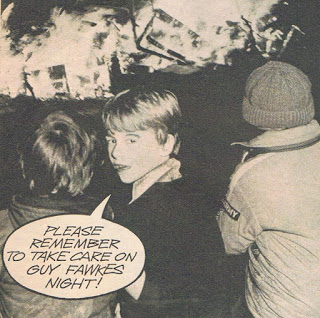(1) NO BUCKS, NO BUCK ROGERS. “Can you make a living writing short fiction?” is the question. Joe Vasicek’s in-depth answer, filled with back-of-the-envelope calculations, is as carefully assembled as any classic hard sf tale.
First of all, it’s worth pointing out that short stories are not like longer books. In my experience (and I am not a master of the short form by any stretch), short stories do not sell as well in ebook form as longer books. That’s been corroborated anecdotally by virtually every indie writer I’ve spoken with.
At the same time, they aren’t like longer form books in the traditional sense either. I have three deal breakers when it comes to traditional publishing: no non-compete clauses, no ambiguous rights reversion, and no payments based on net. Short story markets typically only buy first publication rights with a 6-12 month exclusivity period, and pay by the word. That means that there’s no reason (unless you want to self-publish immediately) not to sell your short stories to a traditional market first.
(2) PAT SAYS IT’S PERFECT. Patrick St-Denis, who reviews at Pat’s Fantasy Hotlist, just awarded a novel a rare (for him) 10/10 score.
People have often criticized me for being too demanding when I review a novel. They often complain about the fact that very few books ever get a score higher than my infamous 7.5/10. But the fact is that year in and year out, there are always a number of works ending up with an 8/10 or more.
When I announced on the Hotlist’s Facebook page last week that Jacqueline Carey’s Kushiel’s Avatar would get a 10/10, some people were shocked. I received a couple of messages asking me if it was the first book to get a perfect score from me. I knew there were a few, but I actually had to go through my reviews to find out exactly how many of them had wowed me to perfection. Interestingly enough, in the eleven years I’ve been reviewing books, Carey’s Kushiel’s Avatar will be the 11th novel to garner a perfect score. The 13th, if you throw the Mötley Crüe biography and GRRM’s The World of Ice and Fire into the mix.
(3) GOLDEN SOUNDS. Trisha Lynn on “Road to the Hugo Awards: Fight the Future for Best Fancast” at Geeking Out About….
What Works
There are many podcasts out there which are dedicated to reviewing books and movies from a critics’ perspective. However, I believe this is one of the first podcasts I’ve heard of which reviews the actual worlds in which the books or movies take place. Of all the episodes I’ve heard, there are very few instances in which I feel that either Dan or Paul or their guests know or care too much about the current science fiction/fantasy literary blogosphere’s opinions of the works, its creators, its production team, or the actors portraying the characters. They are just there to discuss the work and only the work. When they do bring in references to other works or the greater outside world, they do it either near the beginning or near the end so that the discussion of most of the episode is focused on just the world inside the movie or book. It’s both fan discussion and literary criticism in its purest form, where the only clues you have are the work itself, the world you currently inhabit, your personal experiences, and that’s it.
(4) A BRIDGE JOKE TOO FAR? The Guardian asks “Could Cthulhu trump the other Super Tuesday contenders?”
“Many humans are under the impression that the Cthulhu for America movement is a joke candidacy, like Vermin Supreme – a way for people disgusted by a political system that has long since perished to voice a vote for a greater evil to end the status quo and the world,” says [campaign manager] Eminence Waite, sighing in a way that makes you think she’s been asked this question many times before. “They have never been so wrong, yet so right. Cthulhu is no joke.”
(5) HOW MUCH IS YOUR HARRY WORTH? Old editions of Harry Potter books may be worth up to $55,000.
First up, hardcover first editions of the original Harry Potter and the Philosopher’s Stone could fetch anywhere from $40,000 to $55,000. Only 500 were published, and 300 went to libraries, so if you have one, go ahead and treat yourself to a nice dinner. You can afford it.
This edition has a print line that reads “10 9 8 7 6 5 4 3 2 1” and credits of “Joanne Rowling” rather than JK.
(6) BUD WEBSTER MEMORIAL. There will be a Memorial for Bud Webster on March 12, from noon til 5 p.m., at the Courtyard by Marriott Williamsburg, 470 Mclaws Cir, Williamsburg, VA 23185.
Hotel Rooms: $89.00 – Please ask for the Bud Webster Memorial Rate – Also mention Mary Horton or Butch Allen if there is some confusion while trying to book the room. We are not catering anything. Sodas and snacks are available at registration
(7) DON’T GET STUCK IN THE MIDDLE. Kameron Hurley (according to her blog, an “intellectual badass”), reveals how to “Finish your Sh*t: Secrets of an Evolving Writing Process”.
People often ask how I’m able to do all that work on top of having a day job, and the answer is, most days, I just don’t know. But one thing I have learned in the last three months is that I have a lot easier time completing a draft that has me stuck in the mucky middle if I just skip ahead and write the ending.
I tend to spend a lot of time on the openings of my novels and stories, and it shows. My latest short story for Patreon, “The Plague Givers,” is a good example of this. There’s a very polished beginning, as far as the prose goes, and then it veers off into simplier language for much of the middle, and returns a bit toward the end to the more polished language. I will most likely go back and polish out the other half of the story before finding a home for it elsewhere, but watching how I completed that story reminded me of how I’ve hacked my process the last few months to try and get work out the door just a little faster.
I’m a discovery writer, which means I like to be surprised by events that happen in a book just as a reader would be.
(8) LURKER QUEST ACHIEVED. In the February 8 Scroll (item 10) a lurker described a story and asked for help identifying it.
The answer is Kent Patterson’s “Barely Decent”, published in Analog in 1991. The literary estate holder was located with an assist from Kevin J Anderson, who had anthologized another Patterson story, and from Jerry Oltion. The rights holder has authorized a link to a free download of the PDF for the story.
(9) THE POWER OF LOVE. Barbara Barrett shows how mighty love is in the worlds of Robert E. Howard: “Discovering Robert E. Howard: ‘My Very Dear Beans, Cornbread and Onions’ (Valentine’s Day—Robert E. Howard Style)” at Black Gate. But this otherwise serious roundup begins with a leetle joke —
For those of you who searched for the right way to describe your feelings for that certain special someone on February 14, Robert E. Howard might have been be a good source. After all, he was a wizard with words. And he did have a novel approach when it came to romance. As Bob Howard explains to Novalyne Price Ellis in her book One Who Walked Alone:
[M]en made a terrible mistake when they called their best girls their rose or violet or names like that, because a man ought to call his girl something that was near his heart. What, he asked, was nearer a man’s heart than his stomach? Therefore he considered it to be an indication of his deep felt love and esteem to call me his cherished little bunch of onion tops, and judging from past experience, both of us had a highest regard for onions. (106)
(10) OSCARS. At the Academy Awards on Sunday night, sf favorites The Martian and Star Wars: The Force Awakens won nothing, but Mad Max: Fury Road, so often praised here in comments, won six Oscars (Best Costume Design, Best Production Design, Best Make-up and Hair, Best Editing, Best Sound Editing and Best Sound Mixing), more than any other film.
Other sf/fantasy winners — Best Animated Feature Film: Inside Out and Best Visual Effects: Andrew Whitehurst, Paul Norris, Mark Ardington, and Sara Bennett for Ex Machina.
(11) FAST OUT OF THE GATE. R. S. Belcher, fresh from his GoH-ship at MystiCon, is ready to impart “Lessons Learned at a Writing Workshop”.
Lead strong, hook ’em, and keep ’em hooked: This advice given to several of the workshop participants made an amazing difference between draft one and draft two. The sooner you get the reader’s attention and begin to unwind the reason for your tale, the stronger the likelihood, your reader will keep reading to learn more. Novels can afford a little more leisurely pace…but only a little, and for short fiction, a strong, powerful hook is needed right out of the gate. You may only have a few sentences of an editor’s attention before they decide to keep reading or toss the Manuscript—make them count.
(12) MESSAGE FIRST. SFF World’s “Robert J. Sawyer Interview” offers this self-revelation.
What came first – the story or the characters?
Neither. I’m a thematically driven writer; I figure out what I want to say first and then devise a storyline and a cast of characters that will let me most effectively say it. For Quantum Night, the high-level concept is this: most human beings have no inner life, and the majority of those who do have no conscience. And the theme is: the most pernicious lie humanity has ever told itself is that you can’t change human nature. Once I had those tent poles in place, the rest was easy.
(13) A LITTLE LIST. David Brin asks, “Trumpopulists: what will be the priorities?” at Contrary Brin.
There is often a logic, beneath shrill jeremiads. For example, Ted Cruz has proclaimed that even one more liberal or moderate justice appointed to the U.S. Supreme Court might shift the reading of the Second Amendment (2A) — does it give private individuals an unlimited right to own guns, or reserve that right only to members of a militia? (Go read the amendment and come back. In Heller v. D.C. the court went with Red America’s wishes by one vote, one interpretative vote. Moreover, let me shudder and add that Cruz is probably right about this one thing. The swing between those two interpretations is very likely to teeter for our lifetimes and more. But in railing about the near-term, he and his followers ignore the long term implication — …
— that the Second Amendment, as currently worded, is by far the weakest in the entire Bill of Rights. If this court or the next one does not reverse Heller, then it will inevitably happen when some huge national tragedy strikes. That’s called the “Ratchet Effect” (see The Transparent Society), and you are behooved to plan, during good times, for what you’ll do at some future crisis, when the public is scared.
If today’s political rightwing were rational, it would be working right now to gather consensus for a new Constitutional Amendment that might protect weapon rights far more firmly than the ambiguous and inherently frail Second. I have elsewhere described just such an amendment, which could actually pass! Because it offers some needed compromises to liberals and moderates – some positive-sum win-wins – while protecting a core of gun rights more firmly than 2A.
(14) JUDGING LOVECRAFT AND OTHERS. Frequent readers of Jim C. Hines will find his Uncanny Magazine essay “Men of Their Times” not only deals with its topic in a significant way, it also outlines the analytical process he applies to history.
…This argument comes up so quickly and reliably in these conversations that it might as well be a Pavlovian response. Any mention of the word “racism” in association with names like Tolkien or Burroughs or Campbell or Lovecraft is a bell whose chimes will trigger an immediate response of “But historical context!”
Context does matter. Unfortunately, as with so many arguments, it all tends to get oversimplified into a false binary. On one side are the self–righteous haters who get off on tearing down the giants of our field with zero consideration of the time and culture in which they lived. On the other are those who sweep any and all sins, no matter how egregious, under the rug of “Historical Context.”
….In an ideal world, I think most of us would like to believe humanity is growing wiser and more compassionate as a species. (Whether or not that’s true is a debate best left for another article.) If we assume that to be true, we have to expect a greater amount of ignorance and intolerance from the past. We also have to recognize that humanity is not homogenous, and every time period has a wide range of opinion and belief.
When we talk about historical context, we have to look both deeper and broader. Were Lovecraft’s views truly typical of the time, or was his bigotry extreme even for the early 20th century? Did those views change over time, or did he double–down on his prejudices?
Recognizing that someone was a product of their time is one piece of understanding their attitudes and prejudices. It’s not carte blanche to ignore them.
(15) STORIES OF WHAT-IF. At Carribean Beat, Philip Sander talks to Nalo Hopkinson, Tobias Buckell, Karen Lord, and R.S.A. Garcia.
Caribbean Beat: How do you define speculative fiction?
Nalo Hopkinson: I generally only use the term “speculative fiction” in academic circles. Science fiction and fantasy are literatures that challenge the complacency of our received wisdoms about power, culture, experience, language, existence, social systems, systems of knowledge, and frameworks of understanding. They make us reconsider whose stories deserve to be told, whose narratives shape the future and our beliefs, and who has the “right” to make and remake the world.
Is there a distinctively Caribbean kind of spec-fic?
A bunch of Caribbean SF/F [science fiction/fantasy] writers will be gathering to discuss this in March at the University of California, Riverside, as part of a year of programming I’m co-organising on alternative futurisms. I suspect one of the things we’ll end up talking about is Caribbean relationships to the experience of resistance — how it’s shaped our histories and imaginations, and so how it must shape our imaginative narratives. For instance, when I watch The Lord of the Rings, I wonder what the orcs do to rebel against their forced existence as beings created to be foot soldiers and cannon fodder.
We’ll probably also talk about the unique impact of place and space on the Caribbean psyche. I recently wrote a short story for Drowned Worlds, a fiction anthology on the theme of the effects of rising sea levels worldwide. For me, coming from island nations whose economies are often dependent on bringing tourists to our beaches, and which are the guardians of so much of the world’s precious biodiversity, it was particularly painful and personal to write a story about what will become of our lands. The resulting piece is angry and spooky, and combines science with duppy conqueror in ways that are uniquely Caribbean.
On the panel, we might also talk about language. The multiple consciousness that Caribbean history gives us is reflected in our code-switching, code-sliding, code-tripping dancehall-rapso-dubwise approach to signifying simultaneously on multiple levels. Science fiction reaches for that in its use of neologisms. Caribbean people, like so many hybridised peoples the world over, live it. We are wordsmiths par excellence.
(16) PUPPY COLLATION. Kate Paulk shut off comments at Sad Puppies IV and says “I’ll be going through them and collating the results over the next 2 weeks”. The Hugo nominating deadline is March 31.
(17) TALKING TO THE CUSTOMERS. The Video Shop presents “400 Fourth Wall Breaking Films Supercut”. (Most of you already know that when somebody on stage acknowledges the audience, that’s called breaking the fourth wall.) (Via io9.)
Since you’re reading this let me give you a bit of background and a couple of provisos.
This is not meant to be a comprehensive list of fourth wall breaking films. There are shitloads. Definitely more than 400. But 400 seemed a tidy number to end on. It’s not an academic study and there’s no rhyme or reason behind the grouping of the clips other than what seemed to work. So while yes, there are highbrow French new wave films in there I’ve also had to include The Silence of the Hams and Rocky and Bullwinkle. But then I kind of like that.
And because it’s mine I give more screen time to my favourite serial offenders, just because I can. Take a bow John Landis, Woody Allen and Mike Myers.
[Thanks to John King Tarpinian, Andrew Porter, and Rob Thornton for some of these stories. Title credit goes to File 770 contributing editor of the day Mart.]







